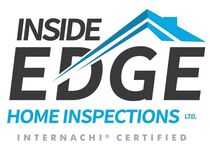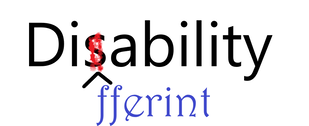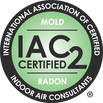Mike's Home Inspector BlogMichael Burfitt |
|
April 2nd is World Autism Awareness Day, and this is a topic I feel passionate about almost as much as I do about home inspections. Why? Because your favourite inspector has been diagnosed with Autism, otherwise known as autism spectrum disorder (ASD). While Autism is classified as a permanent disability, I prefer to think of it as a different-ability, mostly because less than 2% of the population falls under the criteria for ASD. There are a lot of harmful myths around people on the spectrum, the worst being that they are incapable of being good employees or even being successful in life. Let's shatter that myth right now! One of the motivations for starting my own company from the ground up was a desire to be a trailblazer: studies have shown that up to 65% of Autistic adults are unable to find employment and this is not because of any lack of talent or job skills: the entire job search process is often stacked against those in the autistic community, something I know and have experienced firsthand many times in my working career.
Here are a few reasons why, if all goes well in the coming years, it will be an easy decision to hire neurodivergent people if the opportunity arose. Being on the spectrum, I know what an untapped market this is! Attention to Detail One of the hallmark traits of autism is an acute attention to detail. For a home inspector, this can be a tremendous asset. Those on the spectrum often excel at noticing small discrepancies or irregularities that others might overlook. From identifying cracks in the foundation to pinpointing subtle signs of water damage, individuals with autism can offer a meticulous eye during the inspection process. I recently spotted an issue that turned out to be major, saving my clients about $8000 in repair costs! Pattern Recognition Individuals with autism frequently demonstrate a talent for pattern recognition. This ability allows them to discern underlying structures or trends that may not be immediately apparent to others. In the context of home inspection, this skill can be invaluable when analyzing complex systems such as electrical wiring or plumbing (I like to think of this as my greatest strength). By recognizing patterns in these systems, inspectors can more effectively identify potential issues and provide thorough assessments to their clients. Sensory Sensitivities Many individuals on the autism spectrum experience sensory sensitivities, meaning they may be more attuned to environmental stimuli such as light, sound, or texture. While this is often seen only as a negative trait, it can also offer unique insights during a home inspection. Sensory-aware inspectors may notice subtle cues – like the hum of an appliance or the feel of a draft – that could indicate underlying problems within the home's infrastructure. I have caught many issues because of my hypersensitivity. Communication and Client Interaction There is a common belief that those on the spectrum are poor communicators and therefore can't make good home inspectors. While some individuals with autism may face challenges in social communication, many develop effective strategies for navigating interactions with others. Home inspectors on the spectrum can leverage their skills to provide clear explanations and address client concerns. Our direct communication style and ability to convey complex information in a straightforward manner can foster trust and confidence in clients. In the world of home inspection, diversity of thought and perspective is essential. By embracing neurodiversity and recognizing the strengths that individuals with autism bring to the table, we can enrich the field and better serve our clients. From their acute attention to detail and pattern recognition skills to their unique insights into sensory experiences, home inspectors on the autism spectrum offer a valuable perspective that enhances the quality and thoroughness of the inspection process. We at Inside Edge are a company that strongly values diversity and inclusion: it is not just a meaningless platitude, it is the backbone of the entire company based on direct, personal experience. Neurodivergent people can always feel comfortable around our company and if I am ever in a position to hire, there is no need to worry about being treated unfairly or having to pretend to be someone else. In the meantime, just remember if you have met one person with Autism, you have met one person with Autism, likely someone with incredible untapped potential! Like many in the home inspection industry, I constantly have my ear to the ground looking at new construction techniques, best practices and using my advanced data science skills to keep my knowledge up to date. One way I do this is by regularly looking over our website statistics, particularly how many hits the website gets (we are up 20% from last year!) and what are the most commonly searched terms on our website. They are, in order: #1 Termites This is by far the most popular page on my website and it’s easy to see why: it is the top search result for “Are there termites in Nova Scotia?” and termites are very destructive to wooden homes, which are pretty much all homes in Nova Scotia. While there is still no verifiable evidence of termites in our area, the blog post still stands: termites ARE coming and it’s a matter of when, not if. I do want to point out that a couple of websites have plagiarized sections of my work on this topic. I am honestly flattered and consider it a compliment that my writing on the subject is worth copying. The only thing I will point out is that there are a lot of AI written blogs on this topic that provide false information. Again, contrary to what other sources say, there are NO termites in Nova Scotia as of 2024 but plenty of other WDO (Wood destroying organisms). #2 Oil Tanks: Fiberglass vs Steel Oil furnaces are becoming less common, but they still make up a sizeable portion of my inspections: 30% of the homes I have inspected have an Oil tank, with a 50/50 split on Furnaces and Boilers. All furnaces were at minimum primarily oil powered, but boilers were divided between oil, propane and electricity as their fuel source. While I have learned a lot since I first wrote that blog post, the only thing I would change is to further clarify that every insurance company is different, and I am not privy to their individual policies. My, or any other professional’s opinion is irrelevant to when the insurance company says a tank needs to be replaced: their decision trumps all. Fun Fact: as of March 2024, the tanks I have inspected have been 71% Steel construction, 29% Fiberglass.
#3 Aluminum Wire Any Doctor will tell you to “never google your symptoms” and this advice can apply to home maintenance related items. A quick search on aluminum electrical wire will scare any new homeowner to put it mildly: it is up to 55 times more likely to burn a house down, insurers frown upon aluminum, it can come loose in the panel, it costs five figures to remove, etc. Here’s the simple truth: aluminum wire is very common, safe when professionally sized (it is usually one size bigger than copper since aluminum has higher electrical resistance) and a great choice for sending electricity a long distance with minimal losses since it is so light. Even the term aluminum is a misnomer: modern aluminum wire is an alloy, which means it has other metals mixed in. What you DO need to be concerned about is a wire known as AA-1350. Essentially, this type of wire was designed for transmission and was a poor choice to use in electrical distribution panels. What the internet doesn’t tell you is that this wire was discontinued in 1972 and rarely used past the mid-70s. It is rare for an electrical system that old to have never been inspected, repaired, or replaced by a professional electrician. Let me summarize it with some hard data from homes that I have personally inspected: % of homes that have aluminum wiring of some form: 100% % of homes that use single strand AA-1350 branch circuit wire (the bad kind): 0% There is a lot of misinformation online when it comes to home maintenance, much of it from those who have a financial incentive to push it. Part of my role as a home inspector is to both point out issues that should be further addressed by a specialist and, more importantly, point out the issues that, while on the surface appear scary, are really not a big deal and all part of routine maintenance all homeowners face. If you read part one of this blog post, you would know that there are a lot of very scary scams going on now. These scammers are ruthless, highly organized, and will drain your bank account dry without a hint of remorse. In the past scammers were laughably bad with poor grammar, awful spelling, and ridiculous subject lines in their emails (the Prince of Nigeria doesn’t need your help to move $4.6 million to your bank account for a $500 fee!) however times have changed. Today they can be virtually indistinguishable from legitimate businesses, which harms all of us who rely on doing business online to people we have usually never met in person. All is not hopeless however and here are some tools you can use to defend against cyberscams. Scammer Tells While it can be difficult to tell scammers apart from honest people, in my experience every scammer has some tells. By themselves they don't always mean a scam however if you encounter these, especially more than one proceed with extreme caution. Unsolicited Requests for Personal Information Be wary of individuals or websites asking for sensitive, personal information such as passwords, SIN (or SSN) numbers, or bank account details without a valid reason. Even though I have completed PCI training (required to handle bank transactions) our business does NOT collect ANY financial information as all transactions are conducted through a trusted and established financial partner. I do not know anything besides the type of card used (i.e. Visa, Mastercard, Debit) nor do I want this information. We also have not, do not and will not accept or request payment in untraceable means such as Cryptocurrency or Gift Cards! Too Good to Be True Offers Scammers often lure victims with offers that seem too good to pass up, such as guaranteed large sums of money for little to no effort. In our case, we have great rates but will NEVER offer free or almost free inspections. Browsing this website will easily demonstrate to you how passionate I am about home inspections, but we do have bills to pay! Poor Grammar and Spelling While scammers are getting very good at their English, there are always some things you can look out for: scammers frequently use the word “kindly” as it is used far more commonly in their countries (almost all cyber scammers targeting North Americans are in either India, Nigeria, or Ghana). They also tend to list phone numbers as “+1 (555) 555-5555” when most North Americans do not use the country code and if they do, I have never seen anyone raised in this continent use the “+1”. Fake Profiles or Websites
Check for inconsistencies in profiles or websites, such as missing contact information, suspicious URLs, or copied content from legitimate sources. With the explosion in real estate prices, especially in Halifax, there were several fake websites created. Luckily, they seem to now be offline but new fake websites and advertisements are popping up every day. Requests for Money or Financial Assistance Always be cautious if someone you've met online asks you for money, especially if it's for reasons like emergency medical bills, travel expenses, bail to be released from custody, or investment opportunities and even more so if the request is in the form of Gift Cards or Bitcoin. We, like most legitimate home inspectors NEVER charge more than quoted and will never ask for any money outside of a formal and traceable invoice. Pressure Tactics Scammers may use pressure tactics to rush you into deciding before you have time to think it through. They might claim the offer is limited or time sensitive. While we are offering a 15% off winter sale, this is about the extent of our “limited time” offers. We will still honour it for a few days past the expiry and since I personally detest them, we will never use high pressure tactics. (Don’t) Fight Back Against Cyberscammers! While there are plenty of videos online of people who take on scammers (known as scam baiters), and it feels good to see justice served it is important to note that like any television show there's a lot more to it than just humiliating scammers. Much like how home renovation TV programs never show the extensive mess, many permits required, frustration of dealing with contractors who ghost, and too-many-to-count unexpected delays involved in any major project, taking on scammers is a risky and often dangerous game to play. These scammers are not just a few young adults overseas in a call centre: they are part of large organizations who get better at scamming every day. Much like yelling at a fast-food cashier is not going to bring any type of positive change, trying to guilt someone who sees you as a number is a waste of time and energy. As well, these organizations, like anyone else do not like being attacked and baiters run the risk of harmful retaliation. If you run across someone who is a scammer don’t engage them, don't reply, don't try to reason with them and most importantly resist the urge to fight back! Ignore, block, and delete any messages from known or suspected scammers and if it is phone call, resist the Canadian urge to be polite and hang up immediately without comment. If they call back? Just hang up again. Just as your favourite home inspector does after every inspection, scammers use feedback to improve their skills. Baiting a scammer or pointing out their weaknesses is a great way to unknowingly provide them with knowledge of how to refine their grifting skills. I am intentionally withholding a major "tell" so no overseas scammer realizes it and corrects it. A Final Note While I have mentioned that most of these scammers are in the nations of Nigeria and India these two countries have a combined population of over 1.6 BILLION (1600 million) compared to about 38 million in Canada. Contrary to popular belief, these countries are NOT havens for criminals and the reason these 2 countries are where most cyber scammers targeting North Americans reside is because English is widely spoken, and authorities are inconsistent at best. These scams are also very much illegal in those countries, which is where the term “419 scam” comes from (it's the section number in the Nigerian Criminal Code that covers scams). Remember our communities are full of people who proudly come from all over the world and are honest hard-working people who help shape Canada into such a great, diverse country. When I worked in retail it was emphasized over and over that there is no such thing as a “typical” shoplifter and the same applies for criminals in general. They look like anyone, can be anywhere and appear at any time and blending in is why so many are successful. Please use caution online so you don’t become the next victim of these scammers. |
Archives
April 2024
Categories
All
|





 RSS Feed
RSS Feed

